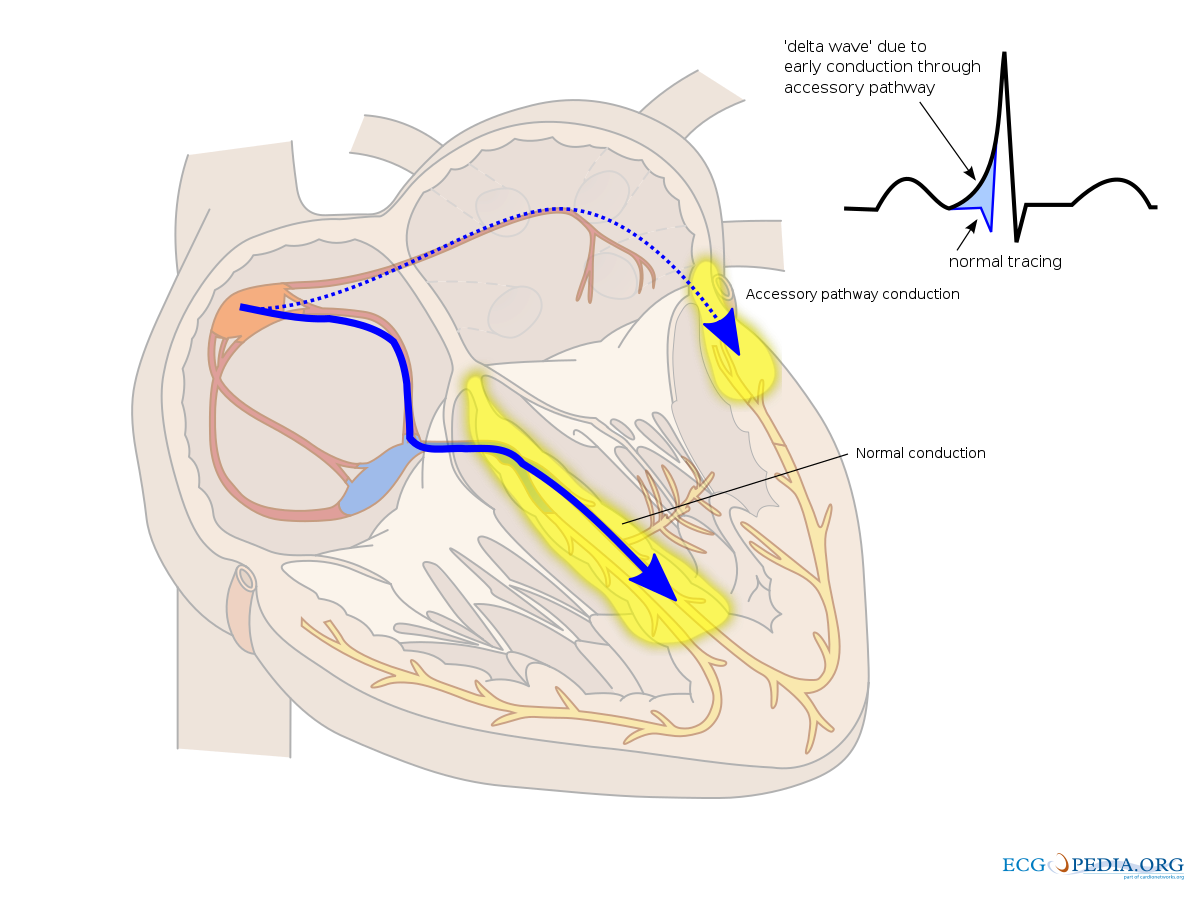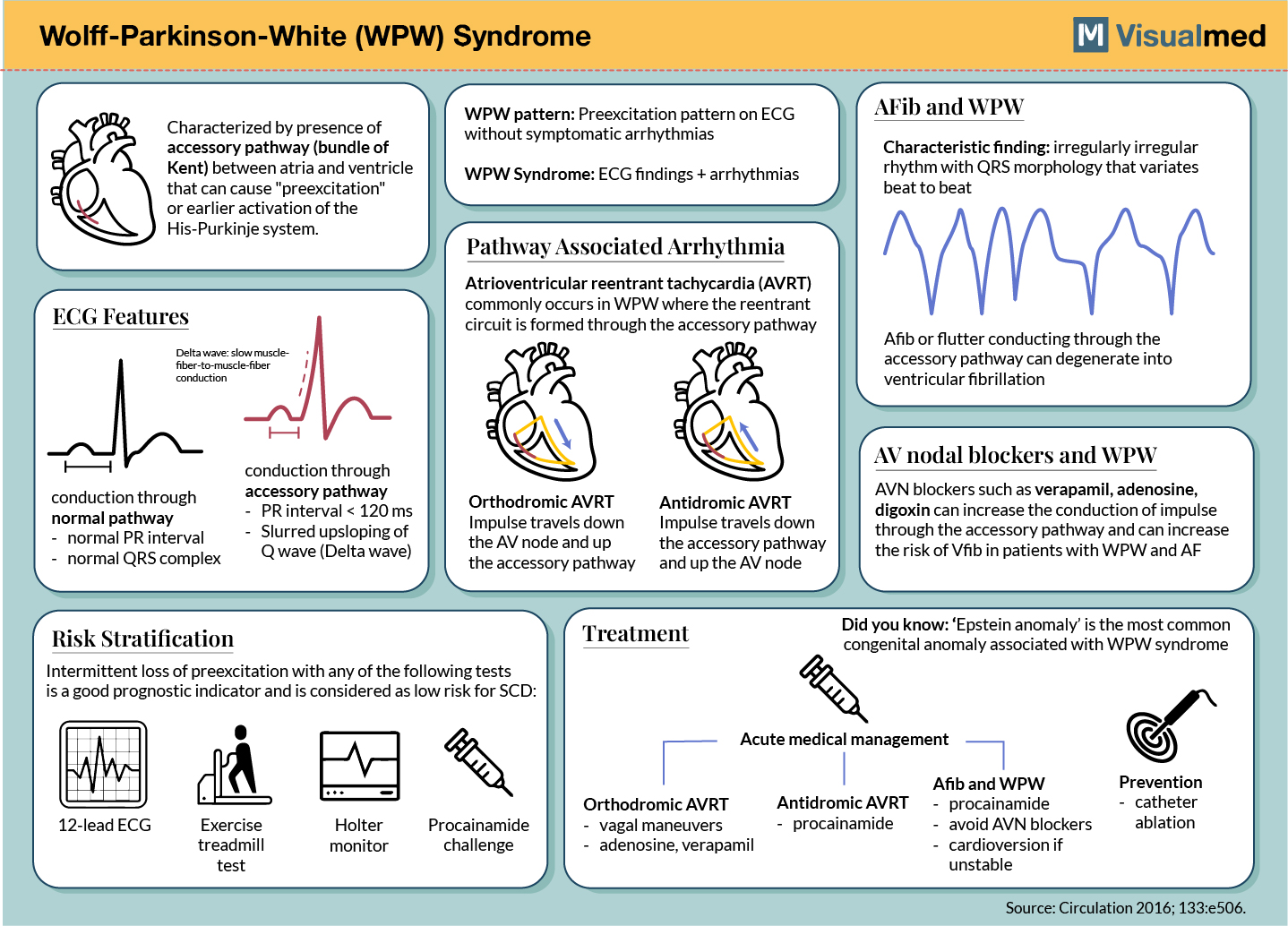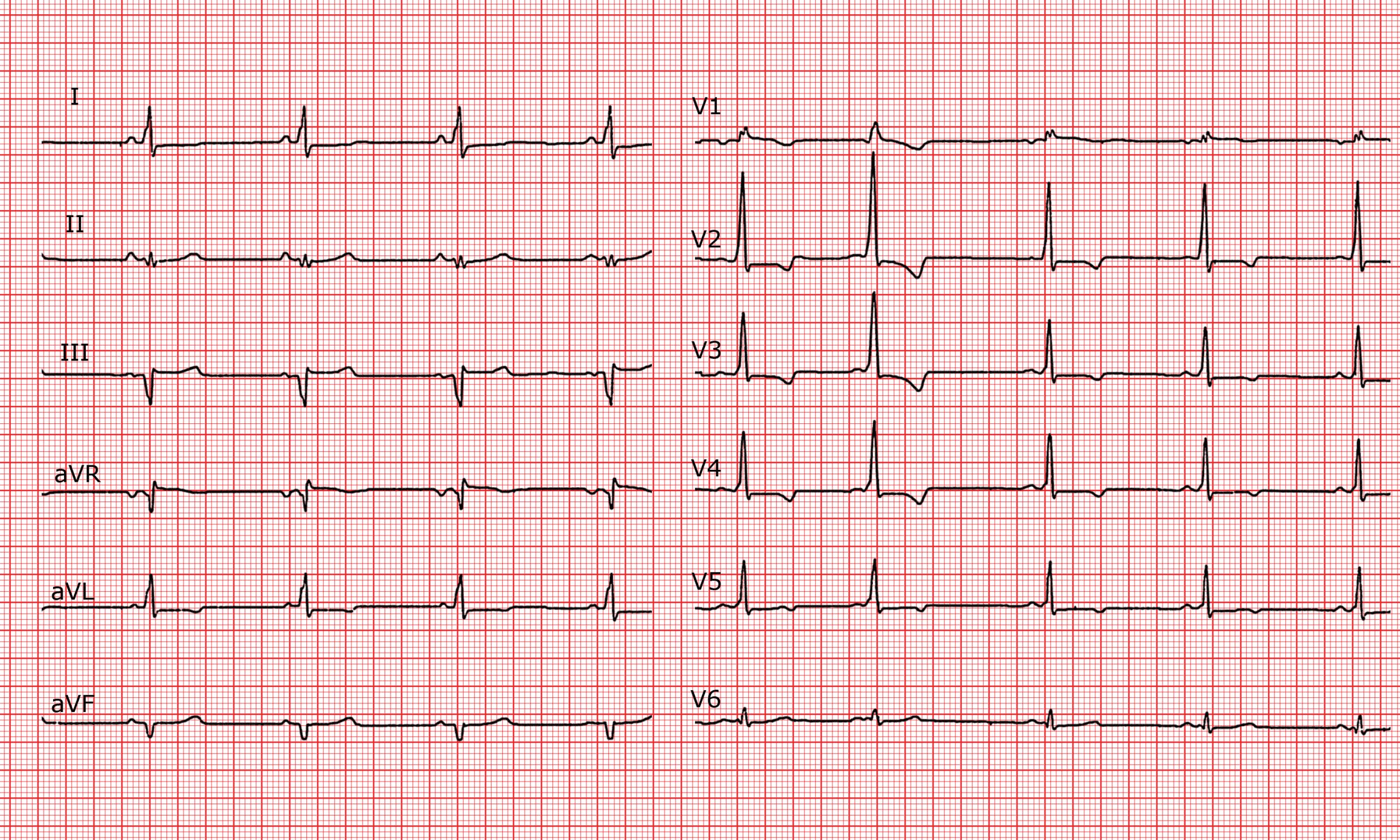

Some people experience occasional or frequent episodes of very fast heartbeats, known as tachycardia. Wolff-Parkinson-White syndrome is one of the possible causes. There are ways to avoid or manage these episodes, while surgery can completely cure the condition in most people.
Rarely, the Wolff-Parkinson-White syndrome can cause the heart to stop beating (cardiac arrest), which is a medical emergency that can be fatal.
If you have chest pain, difficulty breathing or pass out, or someone near you does, you should call triple zero (000) and ask for an ambulance.
What causes Wolff-Parkinson-White syndrome?
Inside the heart, small electrical signals travel along the nerves to the heart’s muscle cells, causing them to contract. This squeezes blood out of the heart and around the body. Then the muscle cells relax and blood flows back into the heart, ready to be pumped out again.
People with Wolff-Parkinson-White syndrome have an extra connection or group of nerve cells that disrupt the way these electrical signals operate. When this happens, the heart beats extra fast.
Doctors don’t know what causes this extra connection to form in the developing heart before birth. Only a few people with Wolff-Parkinson-White syndrome have a family history of the condition, so there is not a significant genetic cause.
Wolff-Parkinson-White syndrome symptoms
Most people with the condition show no symptoms. In those who do notice symptoms, the condition usually starts when they are in their teens or their 20s.
Symptoms appear when the extra nerve cells cause extremely fast heartbeats, which are usually regular but can be irregular. The episodes usually last between a few seconds and a few hours. They might be frequent (for example, every day) or occasional (for example, a few times per year).
In mild cases, this can cause:
- a pounding heart (palpitations)
- dizziness or light-headedness
- sweating
- a feeling of anxiety
- a fast heart rate
- fatigue, especially with exercise
Young children might not be able to describe how they are feeling, but you might notice they are pale and restless, with a low appetite and fast breathing.
People with serious symptoms might:
- feel short of breath
- have chest pain
- faint
- experience cardiac arrest (though this is rare)
If you discover you have Wolff-Parkinson-White syndrome, even if you have no symptoms, you should see your doctor. They will discuss with you what further tests or treatment they recommend for your particular situation.
Wolff-Parkinson-White syndrome diagnosis
Many heart conditions can cause similar symptoms. You might need several tests before your doctor can work out the cause, and they will refer you to a cardiologist.
Wolff-Parkinson-White syndrome is usually diagnosed with an electrocardiogram (ECG). This test measures your heart’s electrical activity. The unusual electrical activity caused by the extra connection of nerve cells shows up as a characteristic pattern in the ECG test results.
Your cardiologist might also do extra tests to find out more about the severity of your condition and risks of problems in the future.
Wolff-Parkinson-White syndrome treatment and prevention
There are many treatment options, depending on how severe your tachycardia episodes are, and your chance of having serious problems. Many episodes are quite short and don’t need any treatment.
Treatments fall into 2 categories:
- those designed to stop an episode that has started
- those that will help prevent future episodes
Preventing an episode that has started
Your doctor can advise on ways to interrupt the abnormal electrical signals and slow down the fast heartbeats. They include actions as simple as coughing in a particular way, or applying an ice pack to your face. Only do these if your doctor recommends them. Your doctor might also recommend medication to treat an episode.
Preventing future episodes
In some people, drinking alcohol or caffeine or doing strenuous exercise can trigger an episode. If you find that happening, avoiding these activities might be wise.
Your doctor might recommend that you take daily medicine that slows your heart rate.
Surgery can provide a permanent cure for most people. A long wire called a catheter is inserted through a vein or artery into the heart, where it destroys the extra electrical connection so the disruption can no longer occur. Your cardiologist may recommend this surgery for you if tests show that you are at increased risk of a serious episode.
When to seek help
If you have symptoms that might be Wolff-Parkinson-White syndrome, you should see your doctor for a diagnosis.

